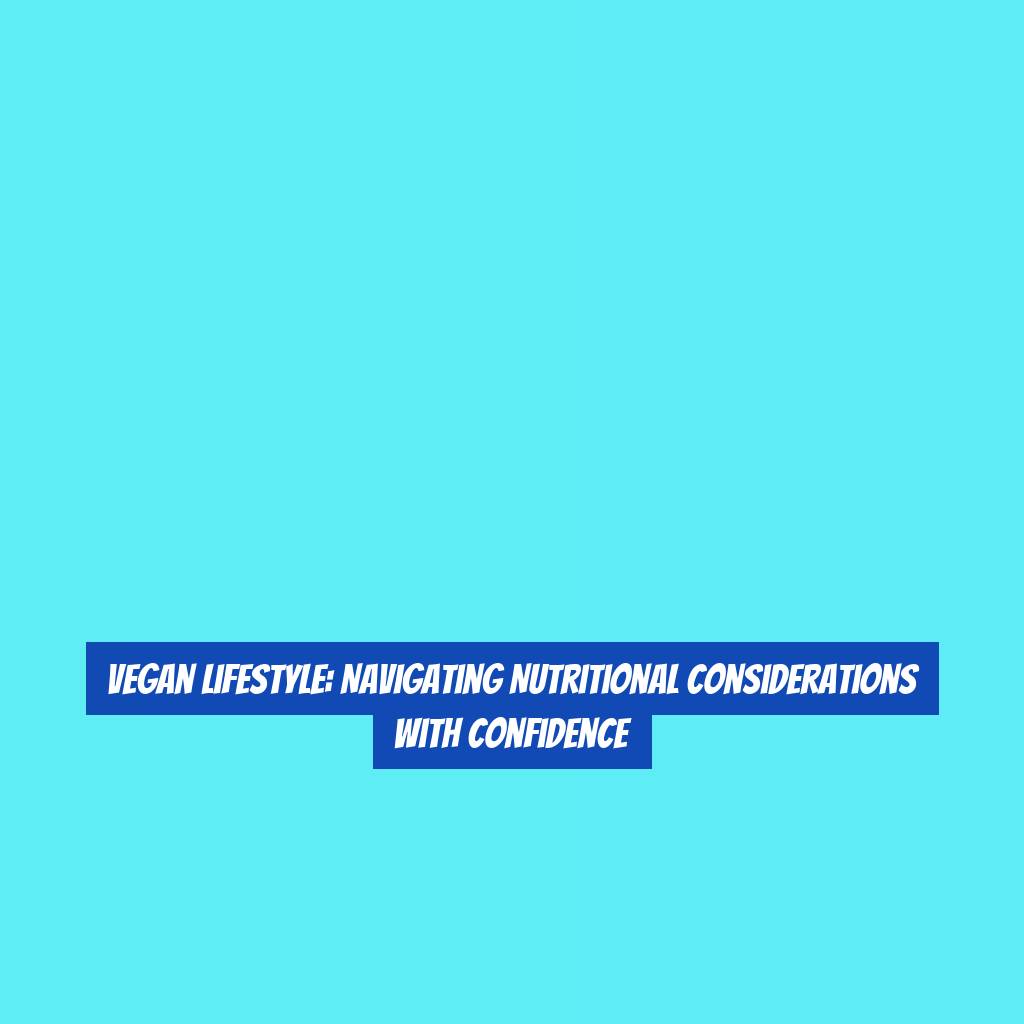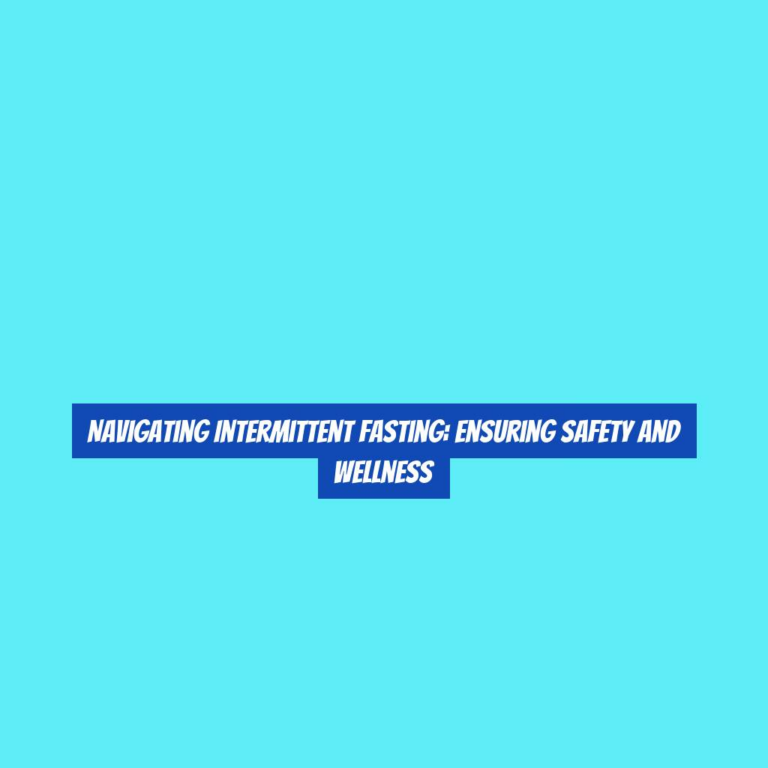Vegan Lifestyle: Navigating Nutritional Considerations with Confidence
YouG??ve made the decision to embrace a vegan lifestyle, but now youG??re faced with the challenge of ensuring that your diet meets all of your nutritional needs. ItG??s natural to have questions and uncertainties about how to navigate this path with confidence.
Understanding the essential nutrients for vegans, discovering protein-rich plant foods, and optimizing your iron and calcium intake are just a few of the considerations that can help you thrive on a plant-based diet. But thereG??s more to it than just that.
By delving into the key nutritional aspects of a vegan lifestyle, youG??ll gain the knowledge and tools to make informed choices and cultivate a balanced, healthful approach to your dietary journey.
Essential Nutrients for Vegans
To maintain a healthy vegan lifestyle, itG??s essential to ensure youG??re obtaining all the necessary nutrients from plant-based sources.
One key nutrient for vegans is vitamin B12, crucial for nerve function and the production of DNA and red blood cells. While itG??s primarily found in animal products, you can get it from fortified foods like nutritional yeast, fortified plant-based milk, or supplements.
Another vital nutrient is iron, necessary for oxygen transport in the body. Plant-based iron sources include lentils, chickpeas, tofu, and spinach. Pairing these with vitamin C-rich foods can enhance iron absorption.
Omega-3 fatty acids are essential for heart and brain health. You can find them in flaxseeds, chia seeds, and walnuts. However, consider algae-based supplements for adequate EPA and DHA, typically found in fish.
Protein is also a crucial focus. Ensure youG??re consuming a variety of legumes, tofu, tempeh, quinoa, and seitan to meet your protein needs.
Lastly, calcium is vital for bone health. Incorporate fortified plant-based milk, tofu, almonds, and leafy greens into your diet to maintain adequate calcium levels.
Protein-Rich Plant Foods
Considering a vegan lifestyle, you can obtain ample protein from various plant-based sources such as legumes, tofu, tempeh, quinoa, and seitan.
Legumes, including beans, lentils, and chickpeas, are excellent sources of protein and can be easily incorporated into your meals.
Tofu, made from soybeans, is a versatile protein-rich food that can be used in stir-fries, salads, and smoothies.
Tempeh, another soy-based product, provides a good amount of protein and can be grilled or used as a meat substitute in various dishes.
Quinoa is a complete protein, containing all nine essential amino acids, making it an ideal option for a protein-packed meal.
Seitan, also known as wheat gluten, is a popular meat substitute thatG??s high in protein and can be seasoned and cooked in a variety of ways.
These plant-based protein sources not only provide the necessary protein for your body but also offer a wide range of essential nutrients, making them valuable components of a balanced vegan diet.
Optimizing Iron and Calcium Intake
When adopting a vegan lifestyle, itG??s essential to focus on optimizing your intake of iron and calcium through mindful food choices.
Iron plays a crucial role in transporting oxygen throughout your body and is abundant in plant-based sources such as lentils, chickpeas, tofu, and fortified cereals. To enhance iron absorption, pair these foods with vitamin C-rich options like bell peppers, citrus fruits, or broccoli. Additionally, cooking in cast-iron pans can also boost the iron content of your meals.
Calcium is vital for maintaining strong bones and teeth. While dairy is a primary source of calcium in many diets, as a vegan, you can obtain this essential mineral from fortified plant-based milk, tofu, almonds, and leafy greens like kale and bok choy. Incorporating these foods into your daily meals can help ensure you meet your calcium needs. To further enhance absorption, ensure an adequate intake of vitamin D through fortified foods or safe sun exposure.
Consider discussing the use of supplements with a healthcare professional to ensure you meet your nutritional requirements. By making informed choices and including a variety of nutrient-dense foods in your diet, you can confidently optimize your iron and calcium intake as a vegan.
Vitamin B12 and Omega-3 Sources
As you focus on optimizing your intake of iron and calcium, itG??s important to also consider sources of Vitamin B12 and Omega-3 for a well-rounded vegan diet.
Vitamin B12 is primarily found in animal products, so as a vegan, itG??s essential to obtain it from fortified foods like plant-based milk, breakfast cereals, nutritional yeast, or through supplements. Regularly consuming these fortified foods or taking a B12 supplement can help prevent deficiency and support nerve function and the formation of red blood cells.
Omega-3 fatty acids are crucial for heart and brain health. While fish is a common source of Omega-3, as a vegan, you can obtain it from plant-based sources such as flaxseeds, chia seeds, hemp seeds, and walnuts. Incorporating these foods into your diet can help ensure an adequate intake of Omega-3 fatty acids. Additionally, algae oil supplements are available for vegans seeking a direct source of EPA and DHA, the active forms of Omega-3 found in fish.
Balancing Macronutrients in a Vegan Diet
To maintain a well-rounded vegan diet, itG??s crucial to balance macronutrients such as carbohydrates, proteins, and fats for optimal health and energy levels. As a vegan, you can ensure youG??re getting the right balance of macronutrients by incorporating a variety of plant-based foods into your meals.
Here are some tips to help you achieve a balanced macronutrient intake:
-
Carbohydrates: Include whole grains like quinoa, brown rice, and oats, as well as starchy vegetables like sweet potatoes and legumes such as lentils and chickpeas to meet your carbohydrate needs.
-
Proteins: Incorporate plant-based sources of protein such as tofu, tempeh, edamame, lentils, and black beans into your meals to ensure an adequate intake of this essential macronutrient.
-
Fats: Include healthy fats from sources like avocados, nuts, seeds, and olive oil in your diet to support nutrient absorption and overall well-being.
-
Balanced Meals: Aim to create well-balanced meals that include a combination of carbohydrates, proteins, and fats to support overall nutritional needs.
-
Nutrient Density: Focus on nutrient-dense foods to ensure youG??re getting a wide range of essential vitamins and minerals along with your macronutrients.
Conclusion
So, as a vegan, you can confidently navigate nutritional considerations by focusing on essential nutrients like protein, iron, calcium, vitamin B12, and omega-3.
With a balanced diet of plant-based protein sources, iron-rich foods, calcium-fortified products, and B12 and omega-3 supplements, you can optimize your health and well-being.
Remember to also pay attention to your macronutrient intake to ensure a well-rounded vegan lifestyle.
Embrace the variety of plant-based options available to you and enjoy the benefits of a vegan diet.




